How you are assessed and how we help you improve your work?
Formative baseline tests are taken by students before they begin studying the A level course. They assess key concepts that students are required to know to be successful on the course and help us to identify knowledge gap; targeted strategies are then employed to address these gaps. Such strategies might include assigning independent work, spending additional time on specific topics, and re-teaching essential prior knowledge before introducing new concepts.
We use assessments throughout the course to identify the strengths and gaps of a student’s own learning and to identify progress made. These assessments identify misconceptions and help us to de what needs to be revisited, retaught or reinforced. Assessments include the checking of substantive knowledge and disciplinary knowledge. In all assessments students are tested on new content, previous content, mathematical skills, and application where appropriate. Through regular assessments we move forward according to how secure students’ knowledge is. This cycle of assessment and feedback move students towards being confident expert learners.
In the department we assess using: baseline assessments, practice exam questions, end of topic cumulative assessments, and mock assessments. Students are provided with individual face to face feedback which informs the written feedback also given. Ongoing assessment for learning is also incorporated into every lesson.
Moreover, students are moving towards marking their own Tests, to understand the examiner’s perspective and the mark scheme, enabling them to critique their own work and identify mistakes. The green feedback sheet includes a reflection section for students to evaluate their revision techniques and their effectiveness. Additionally, after each assessment, students update their assessment tracker, which records all test and mock scores as percentages. This allows them to monitor their progress and focus less on the grades achieved.










